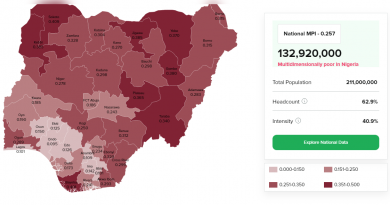17 of the 20 countries most threatened by climate change are in Africa
Currently, 17 out of the 20 countries most threatened by climate change are located in Africa and climate change already impacts 2 to 9 percent of national budgets across the continent. On Wednesday, November 1st, in Accra, Ghana, the ECA Offices for North and West Africa organized an expert group meeting with the theme “Transition to Renewable Resources for Energy and Food Security in North and West Africa.”
The second joint Intergovernmental Committee of Senior Officials and Experts (ICSOE) for North and West Africa was the setting for the meeting. The participants looked at how climate change was affecting both sub-regions, talked about doable steps that nations could take to adapt and protect their food and energy security while still developing, and they also made some crucial recommendations.
At the summit, which was attended by experts, researchers, development practitioners, and representatives of 22 North and West African nations, three important concerns were discussed:
The effects of climate change and how they affect social and economic development plans. Difficulties related to energy security and climate change, particularly the critical role that renewable energy plays in supplying the demands of the populace.
Intra-African commerce has the potential to expedite and ease the transition in energy and agriculture, particularly by promoting food security and the formation of sub-regional value chains within the agricultural industry.
Water scarcity is predicted to impact up to 71 percent of GDP and 61 percent of the population in North Africa, compared to 22 and 36 percent in the rest of the globe. But there are still options: by using renewable energy, we can reduce poverty, create jobs, and promote social justice while also tackling these issues and accelerating the region’s sustainable economic and social development,” stated Zuzana Brixiova Schwidrowski, Director of the ECA office for North Africa.
“Unfortunately, food insecurity is a structural issue in Africa, impacting 20% of the continent’s population as opposed to the 9.8% global rate. The Director of the ECA office for West Africa, Ngone Diop, stated, “Three imperatives are clear in this context: raising agricultural and cereal productivity, mobilizing more domestic resources, and accelerating the implementation of the AfCFTA, which serves as our cornerstone for poverty reduction and the acceleration of structural transformation.”
Africa is heavily impacted by global warming, despite its negligible contribution to it: Africa is home to 17 of the 20 nations that are most at risk from climate change, and the continent’s national budgets are already impacted by the phenomenon to varying degrees[1]. The Intergovernmental Panel on Climate Change (IPCC) has released its most recent report, which states that North and West Africa are especially vulnerable to temperature increases of 1.5°C to 3°C, which could seriously jeopardize population health, productivity, and food security.
As a result of this circumstance, African nations are forced to allocate an increasing percentage of their public funds to population protection and mitigation measures, depriving themselves of funds necessary to support development, preserve development gains, and carry out the Sustainable Development Goals (SDGs).
These limitations highlight how critical it is for Africa to create creative growth models that can both slow down and adapt to climate change while maintaining and improving human well-being.
In order to meet the country’s energy needs in a variety of sectors, such as transportation, industry, heating, cooling, etc., these models should include appropriate land and water management within the framework of sustainable agriculture, as well as the development of financing models that can address such needs.




